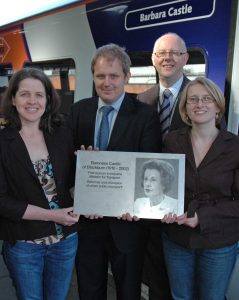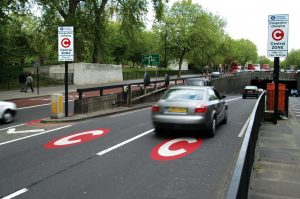pteg has been going for far longer than ten years, but it was a decade ago when the PTEs decided that to work more effectively as a network, and to punch their weight in Whitehall they needed a Support Unit to bring greater focus. I have been there throughout (first as Assistant Director and then Director). In the first of a series of three blog posts, here are some personal reflections on those ten years. Top ten highlights of the last ten years
- Building our reputation and effectiveness: working with a great team at the Support Unit, and the wider PTE network, to turn pteg into a force to be reckoned with that has saved our members millions.
- Assembling an evidence base that got results in the 2013 Spending Review: Several years of painstakingly filling the gaps in our funding case paid off.
- Local Transport Act 2008: A right old slog to get workable legislation on buses – but we did it!
- Our ‘think tank’ role in finding policies that work for new and emerging issues: From young people to Total Transport, and from public health to social inclusion we have been ahead of the game in clearly setting out the challenges ahead and the policies that can work.
- The rise and rise of rail: Fifty years ago the future for the mode looked grim – now there’s an all-party consensus behind it – backed up with sustained investment and with HS2 beckoning.
- Manchester Metrolink: The UK has its first comprehensive modern tram network – and done with style.
- Merseyrail devolution: From Miseryline to successful network – devolution works right here right now!

- Barbara Castle commemoration: with (L-R) Saila Acton and Jonathan Bray (there from the start of the SU and still here!), Tim Larner (former Director) and Louisa Moore (former Policy Advisor)
- Barbara Castle commemoration: Naming a train after the Secretary of State for Transport who established the PTEs and writing the story of the 1968 Transport Act that she brought in to do it.
- Cycling goes mainstream: ten years ago cycling was right at the margins of transport policy and the public consciousness. Not any more – something’s changed. It feels like we are now on the verge of a big shift to the bike.
- Smart cities / smart transport: Smart cities powered by smart grids and made functional through smart transport systems, are moving from the realms of conjecture to reality.
Ten years of the pteg Support Unit: London calling The ice age
New Labour was in charge for most of the decade but transport wasn’t a priority for Blair or Brown. They ticked the no publicity box. Or as former Transport SoS, Alistair Darling, recently summed up this approach – ‘transport is best when it is boring’. By and large Ministers came and went without leaving much of an impression. There were a few exceptions from those that just read out the civil service briefs. An honourable mention for Douglas Alexander who grasped the nettle on bus regulation legislation – which eventually led to a much more workable set of bus powers than that which the officials made sure was thoroughly booby trapped and inoperable in the 2000 Transport Act. Labour saved the best till last with Lord Adonis. He was fascinated by the brief, saw no reason why he shouldn’t do something with it – and he did. Setting a pattern of hyperactivity on the detail that in some ways set a template for Norman Baker. But we didn’t know we were well off in that there was money to spend on transport. Something that came to a shuddering halt after the banking crisis. But the overwhelming feeling was one of a largely ignored opportunity.
After the crash
Norman Baker MP has bought renewed energy to the local transport brief[/caption] The Coalition came in and set to their task with some gusto. In the name of getting public spending under control many of the engines of transport investment were switched off with schemes stopped in their tracks and local transport spend outside London dramatically reduced. Now the engines have been switched on again and credit to them – evidence does count with this Government. Local government was lax in setting out the evidence for the benefits of local transport spending pre-2010 and paid the price. We’ve plugged that gap now and seen the benefits of doing so flow in the 2013 Spending Review. Transport has also been home to pragmatist Secretary of States since 2010 with Norman Baker putting more energy into the Local Transport brief than any previous Minister in the last decade. He’s also been given a relatively free hand to push and nudge local transport policy in a progressive direction – particularly on cycling.
The group think of the metropolitan policy elite
One prevailing frustration over the decade has been dealing with the stunning level of ignorance in London about the political and economic geography of the world beyond the M25. Especially galling now that London runs itself whilst Whitehall rules the rest of England. But not having a clue about the difference between, say, Greater Manchester and the city of Manchester – or not knowing the first thing about how local government works outside London – is not seen as any hindrance whatsoever to being able to make policy. There is no requirement on a civil servant who is in charge of decision making about the regions to have any real idea about how transport or governance works outside London. Time and time again we have had to explain the basics. All of which is one reason why England outside London is subject to successive policies on governance (under this government and the last one) which have little reference to previous policies, creating layers upon layers of initiatives which are rarely fully implemented or conclusive. As well as their shoulder shrugging ‘so what’ ignorance about the provinces they rule – the other problem with the metropolitan policy elite is groupthink. The big ideas for transport policy over the last ten years have been road user charging and mayors. And once the idea is established as groupthink it becomes the answer to everything. Road user charging is a prime example. Putting aside the arguments about whether or not road user charging is a good or a bad thing, the problem was that the obsession with road user charging ended up wasting a lot of time which only ended when the concept was tested to electoral destruction in Manchester and Edinburgh. The Metropolitan policy elite just wouldn’t listen until then. There was a prolonged period when meeting after meeting with the DfT always ended up with the DfT saying you can have what you want – but only if you introduce road user charging. A more savvy approach would have been to give local transport authorities outside London more of the flexibility they need to tackle congestion and raise transport funding locally – of which road user charging is one option. That lesson has kind of been learned now but at the expense of some wasted years.

Road user charging: a game changer for London, more flexibility needed elsewhere
Dizzy London
In many ways this decade has all been about London. High investment levels and progressive policy change has led to the transformation of just about every aspect of the capital’s transport network for the better. London was of course the biggest beneficiary of this but London changed the terms of the debate on urban transport policy for everybody else. Or to be more precise the man who brought the most leadership to transport policy in the last decade did. And that’s Ken Livingstone. The three big game changers that are down to him are:
- Defying Westminster politicians of all stripes – and just about everybody else – to introduce road user charging in London
- Ramping up the London bus network to transform it beyond recognition into arguably the best urban bus network in the world
- Using an effective combination of charm and menaces to get the Whitehall machine behind a massive investment programme for public transport in London
All of this established a new consensus that a high quality public transport network, coupled with traffic restraint measures, could change a city for the better – including supporting a dynamic economy. This seems obvious now but it wasn’t then. It’s hard to see any other Mayoral candidate at that time pursuing such radical policies with such intent – and delivering them. The safer option would be to have played the percentages, to not introduce road user charging and to have been even-handed across the modes. If that had happened the jury would still have been out on whether devolution was the right way forward for transport; whether a world class city needed a world class public transport system; whether you could ever introduce radical measures on traffic restraint in the UK; and on much else that is now taken for granted. This bravado and ambition also created the space for his successor to continue the broad thrust of what Ken Livingstone set in motion but with a marked flourish around cycling. It’s also a model that others have noted – perhaps most noticeably in our patch in Manchester. If you want to do big things, look and act big.
Jonathan Bray
